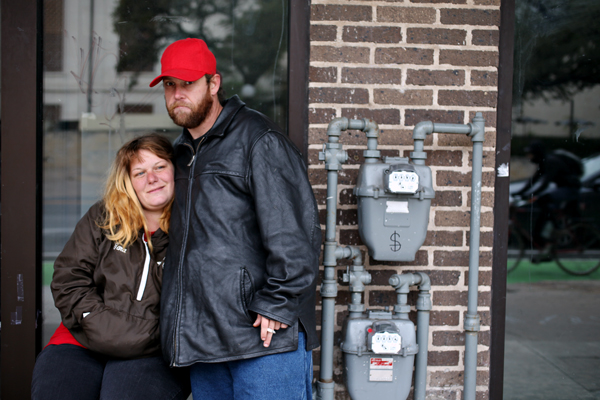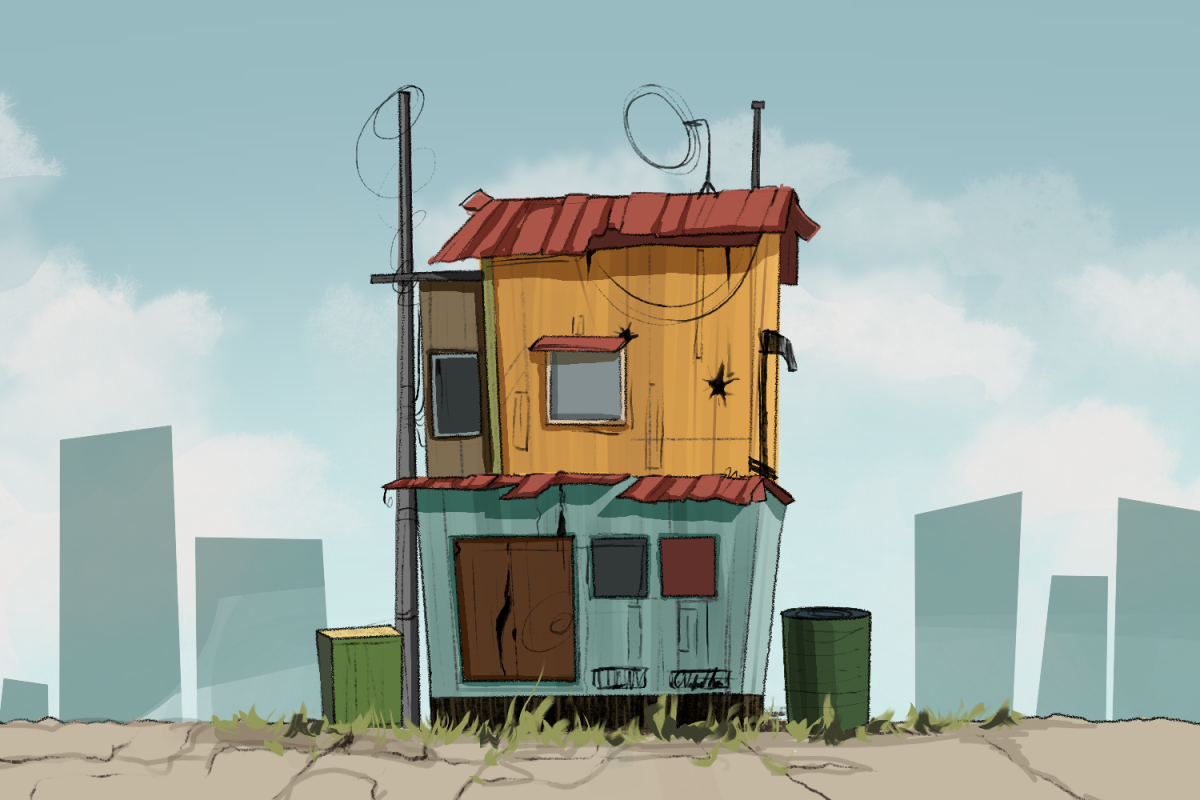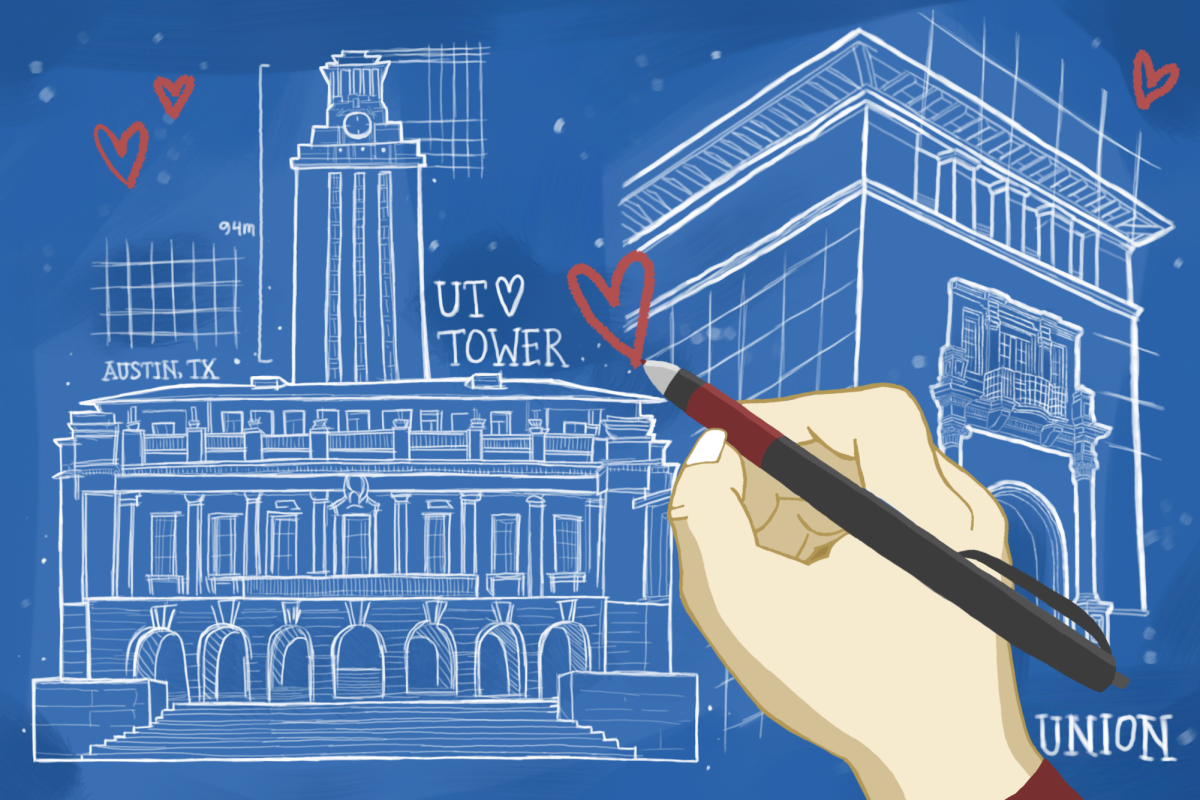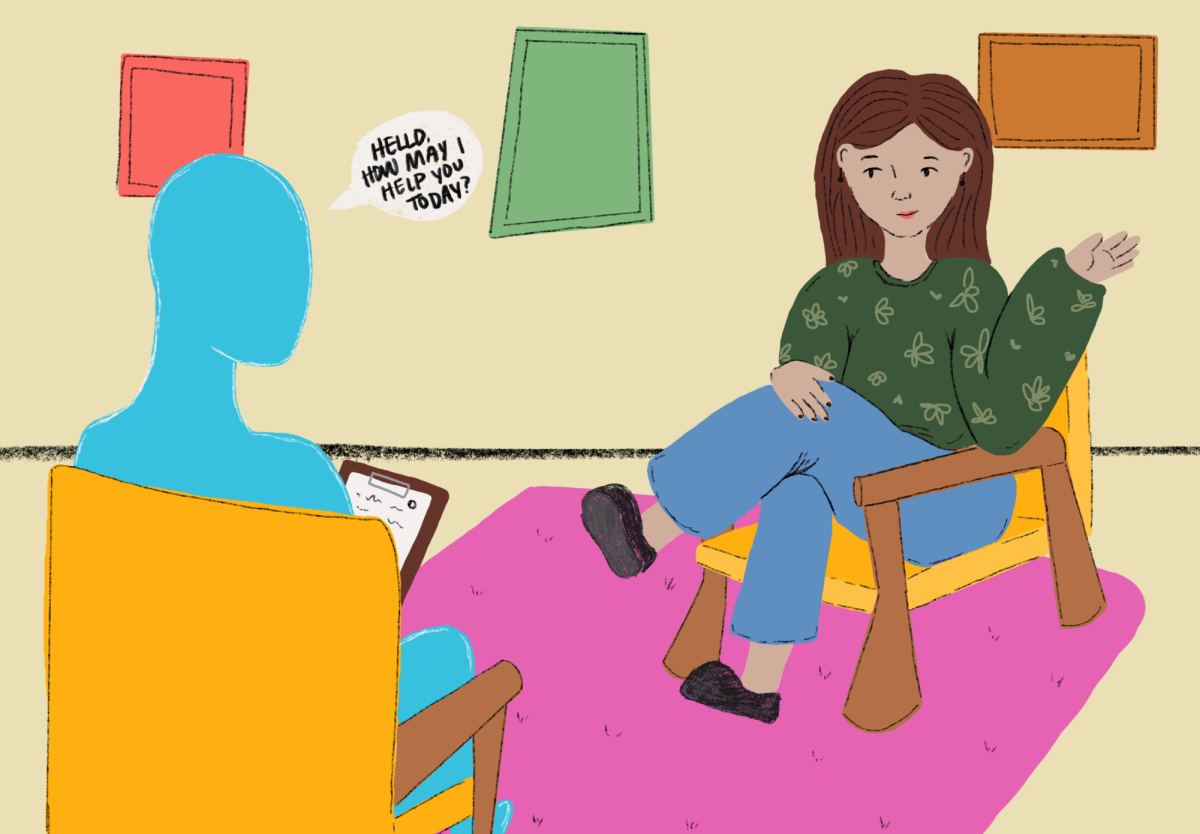Nestled beneath an overhang at Dean Keeton and Guadalupe sits a man named David. Many of you have likely seen him there — he’s become practically a fixture in recent months. With copies of The Challenger, Austin’s street newspaper, in his hands, he looks for students and faculty members interested in purchasing the product. The suggested donation: just two dollars for the 20-page publication packed with poems, stories, articles and artwork. In hopes of raising awareness and building a customer base, he sometimes distributes copies for free. But giving David two dollars is a great investment. Unlike some members of the street community, David will always be clean and sober. It’s a mandatory part of The Challenger’s code of conduct.
David is one of many members of Austin’s street community — often called its homeless community — looking to rebuild his life and secure an income. The City of Austin reports more than 2,300 Austinites living on the street each night, and 5,800 accessing homeless services annually. Of this group, more than 900 are considered chronically homeless — they’ve either been homeless for over one year, or homeless four times in the past three years. With either definition, the number is substantial — and only likely to grow alongside the growth of Austin itself.
As this number grows, so, too, does our responsibility to address the problem and help our neighbors. The Challenger offers a fantastic means to do so. With just a small donation of $2 per month — that’s about the price of one cup of Starbucks coffee per month — the Longhorn community can join to help distributors like David achieve financial stability. The purchase takes about 10 seconds, located on many students’ routes to and from class. The convenience is paramount. But what exactly deems The Challenger worthy of your support?
As Austin’s street newspaper, The Challenger seeks to help the street community in a safe, productive and creative way. On a mission to “empower people in need with economic opportunity and have their viewpoints heard,” The Challenger hopes to “encourage responsibility and freedoms necessary to enhance everyday life.” Members of the street community produce the paper’s content as their means of expression. That same demographic sells the paper to make profit. Buying copies for 50 cents and reselling them for two dollars helps them make ends meet; in some cities, this profit has been sufficient to stabilize finances and lift distributors off the streets.
The model is brilliant and innovative — and it’s not just brilliant and innovative for other communities. The Challenger serves our community, many of the Drag’s homeless residents whom we walk past daily. To learn about their thoughts, words and concerns, we should explore the pages of The Challenger. Its content will leave us more educated on and aware of our surroundings. Our neighbors really aren’t so different from us. The Challenger members’ goal to become self-sufficient and express themselves mirrors the goals of most students at the University.
Despite misconceptions that members of the street community accept their condition and don’t try to elevate themselves to financial stability, many members of this community do, in fact, seek a source of income. Some apply for conventional jobs at restaurants or otherwise — but employers at times are hesitant to hire employees who have no address or phone number. Other times, a member of the street community struggles to perform at a job without proper sleep.
“It’s almost impossible to get a job if you don’t have a place to live,” said Mac, who volunteers at the University Baptist Church’s homeless youth drop-in center in West Campus. “The biggest issue is sleep deprivation — you can’t get a job and get motivated if you don’t get sleep.”
Those who are unable to secure a conventional job sometimes turn to panhandling. Asking for money and hoping to draw the sympathy of walkers, the typical panhandler designs a sign and holds a cup while asking strangers for money in a public place. But sometimes panhandlers suffer from a stigma. Passersby wonder where their money will go and if each recipient is truly in need.
Challenger writers and distributors dispel such concerns. They spend their time engaged in a productive activity to enhance the public conversation. And the Challenger’s code of conduct requires all distributors to be sober and drug-free when they pitch the paper, refrain from any aggression and not “give the ‘hard sell’ to customers.’”
Supporting The Challenger has few consequences but substantial benefits for people — humans — like David. Unlike panhandling, you know your money goes to the right place and receive a respectable product in return.
As Thanksgiving approaches, we reflect on all that we’re thankful for. Much of what we give thanks for, distributors and writers like David don’t have. There’s no better way to express our own gratitude than by helping others reach similar good fortune.
Let’s show this community that we support them. They’ll no doubt thank you for your support when it comes — but until then, I’ll thank you in advance.
Epstein is a Plan II and journalism junior from Dallas. She also works as a sports writer for the Texan.





















